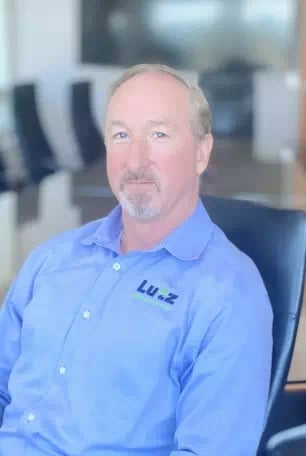Is an employee stock ownership plan (ESOP) right for your business?
%20(1).jpg)
One of the biggest reasons business owners struggle with exiting their business is getting a grasp of all the options available to them. Often, the business owner’s most significant financial asset is tied up in the value of their business. Maximizing the sale price upon exiting the company is a goal of most business owners, but there are typically many other concerns:
- How will a sale affect the employees?
- Will the owner still be able to work?
- In cases where there are minority shareholders, how are they dealt with?
- Will the company name remain intact if sold to a third party?
The answers to these questions can be much more apparent if the business considers a sale to an ESOP. But is your company a legitimate candidate for an ESOP? ESOP Experts provide varying answers to this question. Based on our experience, we believe the following are key areas to consider:
1. Number of Employees
Although there can be exceptions to this, a company should have at least 50 employees to launch a successful ESOP.
2. Type of Employees
The employee base should be primarily made up of full-time workers. Companies with consistent employee turnover are not good candidates.
3. Management Team
The company will need to have a strong management team. Although a selling owner can still be involved and even be running the company, an ESOP transaction will be hard to complete without a strong management team behind the owner.
4. Limited Existing Bank Debt
Typically, ESOP transactions are partially funded by bank debt. If the company already has significant bank debt, an ESOP may not be a good option (unless the owner is willing to be the bank).
5. Consistent Positive Cash Flow
Even with the multiple cash flow advantages of an ESOP, a company wishing to complete an ESOP transaction will need to have a proven record of positive cash flow sufficient to handle the debt requirements of the transaction.
Think About Your Company’s Future with Lutz
Exiting a business is never a one-size-fits-all decision, and an ESOP is just one of many paths to consider. For the right companies, it can provide a rare balance, rewarding the owner, preserving the legacy, and creating meaningful opportunities for employees. If your business meets the criteria above, now may be the time to take a closer look.
At Lutz, we simplify the complex decisions that come with succession planning. Our M&A services can help you evaluate whether an ESOP is the right fit, walk you through the process, and explore alternatives if another option better supports your goals. Contact us to learn more.

- Activator, Achiever, Individualization, Analytical, Focus
Bill Kenedy
Bill Kenedy, Consulting & M&A Shareholder, began his career in 1990. He established Lutz's M&A practice in 2015 and has led its growth since then while serving on both the firm's board of directors and the Lutz Financial board.
Specializing in mergers and acquisitions, Bill guides business owners through critical transition decisions. He provides comprehensive exit planning and transaction services, with specialized expertise in the construction industry. Bill values helping owners achieve optimal outcomes by developing strategic solutions tailored to their unique situations.
At Lutz, Bill says it straight, offering candid guidance that helps owners make informed decisions about their businesses' futures. His direct approach to setting realistic expectations, combined with his focused drive to get deals done, has made him the go-to advisor for business transitions. As a Certified Exit Planning Advisor (CEPA), Certified Public Accountant (CPA), and Accredited Business Valuator (ABV), Bill brings technical expertise to every transaction. Under his leadership, the M&A practice has grown from a concept to a cornerstone of Lutz's service offerings.
Bill lives in Elkhorn, NE, with his wife, Angela. Outside the office, he spends time fishing, hunting, and following various sports teams.
Recent News & Insights
Is sales-based apportionment helping or hurting your bottom line?
Employee Stock Ownership Plan (ESOP) Benefits & Best Practices
The 60/40 Portfolio is Alive and Well
International Momentum Continues




%20(1).jpg?width=300&height=175&name=Mega%20Menu%20Image%20(2)%20(1).jpg)
%20(1)-Mar-08-2024-09-27-14-7268-PM.jpg?width=300&height=175&name=Untitled%20design%20(6)%20(1)-Mar-08-2024-09-27-14-7268-PM.jpg)

%20(1)-Mar-08-2024-09-11-30-0067-PM.jpg?width=300&height=175&name=Untitled%20design%20(3)%20(1)-Mar-08-2024-09-11-30-0067-PM.jpg)
%20(1).jpg?width=300&height=175&name=Mega%20Menu%20Image%20(3)%20(1).jpg)
%20(1).jpg?width=300&height=175&name=Mega%20Menu%20Image%20(4)%20(1).jpg)
%20(1).jpg?width=300&height=175&name=Mega%20Menu%20Image%20(5)%20(1).jpg)
-Mar-08-2024-08-50-35-9527-PM.png?width=300&height=175&name=Untitled%20design%20(1)-Mar-08-2024-08-50-35-9527-PM.png)


.jpg)




